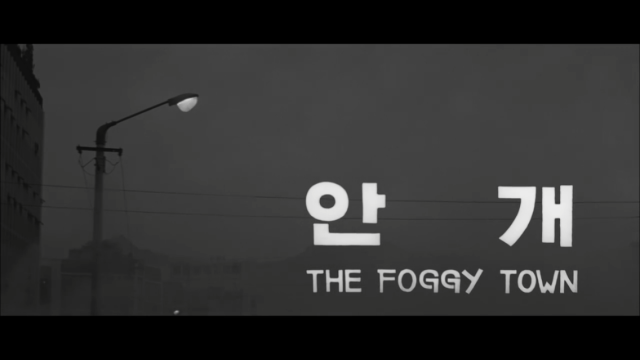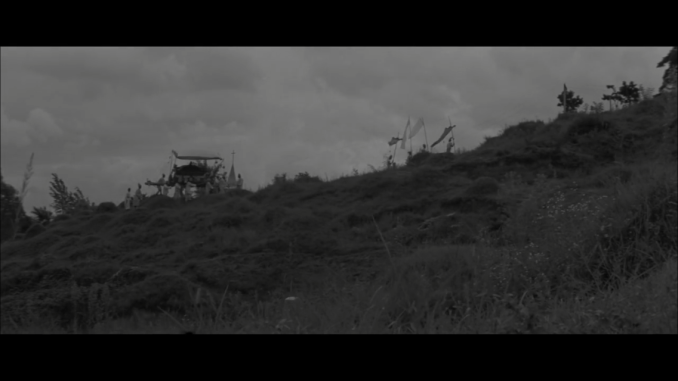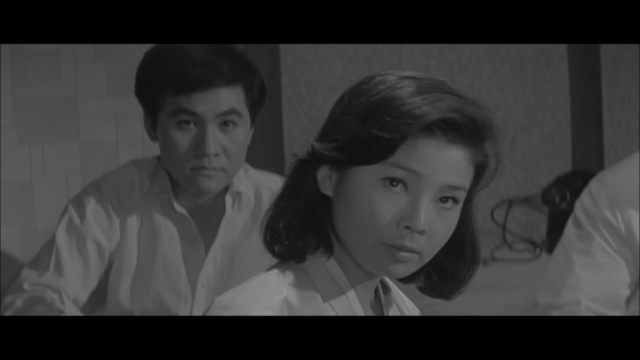
Mist, heat, and small minds twisted by poverty: these are the only notable features of the fictional seaside town of Mujin. Such is the withering assessment of Yun Gi-jun, who works at a large pharmaceutical company owned by his father-in-law. Mujin is where he grew up, and he was glad to leave it, but now he has been sent there to be out of the way while his wife and her father take care of an important business meeting. Gi-jun’s professional status is empty and powerless; every material comfort he has acquired in Seoul is dependent on his advantageous marriage, and when his presence is deemed surplus to requirements, he cannot object to being packed off for a short while to the very hometown from which he was so desperate to escape. There is barely a hint of nostalgia. The town’s enervating heat and omnipresent mist are correlative to its backwardness and mediocrity, which isolate it from the rest of Korea―certainly from the distant capital, on its way to becoming a thriving megacity. And yet perhaps the country is more truly represented by this backwardness and mediocrity than by the aggressive drive towards modernity championed by its right-wing dictator Park Chung-hee. Perhaps the markers of progress and prosperity are as much of a façade as Gi-jun’s job title; perhaps its champions are themselves mired in the same backwardness and mediocrity they ostensibly seek to eradicate. Perhaps, indeed, very drive towards modernity―accompanied as it is by stifling oppression and conformity―is itself, at heart, an expression of deep-seated backwardness and mediocrity.
Socio-political questions such as these are addressed obliquely in this film, for the focus is on the consciousness of the central character, his memories and fantasies. The border between Gi-jun’s mental landscape and the world beyond it is confused by various anti-realist devices, so that the film is as mutable and ambiguous as the coastal fog. At his first appearance in his office, Gi-jun has a hallucination of ants crawling over the pages of an accounts book, brought on, perhaps, by the city heat, or by the alienating, mindless routine of his work. He takes a pill (one of his own company’s?) in order to banish the vision, then slams the book shut when a colleague enters, as if to crush the non-existent ants. Later, in the window of the train, he has the first of several visions of his younger, poorer self; here, as elsewhere, no attempt is made to make the actor seem more youthful, further widening the breach with realism (and suggesting a greater continuity between his former self and his current incarnation than Gi-jun might comfortably admit). In two scenes, the younger and older Gi-jun even seem to interact: in the first of these, the film cuts from younger to older in such a way as to suggest that the younger acknowledges the other’s presence with a slight smile, but this is left open to interpretation rather than made explicit. Later on, as Gi-jun walks along the beach with In-suk, a teacher with whom he has struck up an affair, he sees two boys walking ahead; immediately after, we see that he is no longer walking alongside In-suk, but alongside his younger self, before whom he tries to justify his conduct in marrying a wealthy widow (the younger Gi-jun answers only by spitting). Are the two walkers he sees ahead of him real? Do they prompt his fantastic vision? Or were they from the start products of his imagination? Does he see himself seeing himself? What of all the other scenes from Gi-jun’s past: are they objective flashbacks, subjective memories, or invented fantasies?
Gi-jun is present in almost every scene in the film, either on or off camera. The only real exception is a brief dialogue between his wife and her father as they conduct their business in Seoul, their contempt for Gi-jun evident. In the preceding shot, Gi-jun turns his head to look offscreen as he tends his mother’s grave―perhaps looking towards Seoul and the people who ordered him to perform that same chore. Does the scene really shift to the capital, or is it all in Gi-jun’s imagination? Again, the film is not explicit. After accompanying the policeman into town with the dead woman’s body, Gi-jun visits the office of an old school friend, now a locally powerful tax officer; an episode of Tatiesque comedy as successive underlings bring documents to be stamped seems to prompt Gi-jun to reflect that his own professional life, while outwardly more prestigious, is at heart no less mundane and mediocre. At least this is what might be inferred from the close-up of a typewriter―which happens to be exactly the same typewriter we saw in Gi-jun’s office near the beginning of the film. The shot is followed by a view through a doorway into another office, and again, this very shot was used in the opening scene in Seoul. I doubt the late Nicolas Roeg ever saw Mist,* but he might have found much to enjoy in it.
A few of the temporal disjunctions are quite complex, and tracing them requires some attention. In one scene, after Gi-jun has passed through the town’s small red light district on his way home, a remembered remark from In-suk is the cue for a shot of the younger Gi-jun writing desperate letters to potential employers in Seoul. A series of jump cuts, accompanied by clock chimes, then shows the present-day Gi-jun lying awake from different overhead angles. The next morning, he visits his mother’s grave; when he looks off to the side, he sees a vision of his mother’s funeral procession. Returning from the grave site, he comes across the body of a prostitute who has committed suicide, attended by a police officer and some gawping boys; later we see Gi-jun following the crowd as the dead woman is carried away.** In between, however, there are some more overhead shots of Gi-jun lying awake at night; again, jump cuts are used, but there is a different sequence, and this time there are no clock chimes. Both these sequences of overhead shots appear to take place on the same night, but is it before or after the prostitute’s suicide? Or is the second sequence Gi-jun’s memory of the previous night, the details tweaked in order to show the unreliability of that memory? At the end of the film, as Gi-jun thinks back on the past few days, regretting his treatment of In-suk, scenes of their affair are replayed, only differently: from different angles, with different gestures, dialogue and facial expressions. Again, it could be that these re-stagings are meant to be Gi-jun’s unreliable memories―but then again, it could be that they are the true versions, while the earlier scenes are not to be trusted. Or perhaps nothing is to be trusted; perhaps everything we see is distorted by the main character’s subjectivity. The matter is left open.

Other anti-realist devices include a freeze frame, non-diegetic music that accompanies In-suk’s singing, and the mist itself, theatrical in its excess. All of them serve to leave us disorientated in the oneiric fog of Gi-jun’s subjectivity. The sonorous but oddly affectless manner in which actor Shin Seong-il delivers the voice-over suggests a tranquilized anxiety, soothed, perhaps, by the pills his company makes, or by the mist, which Gi-jun likens to a sleeping drug. The association of the oppressive, deadening mist with the products of what is probably a chaebol (one of the powerful family-owned conglomerates that have dominated Korean society for decades) links the backwardness of Mujin to the supposedly modern and forward-thinking capitalist-consumerism of Seoul, implying that both are equally responsible for the suffocating banality and purposeless constrictions of Gi-jun’s existence, which in turn have resulted in a smug, weak-willed, neurotic character. In-suk may dream of leaving Mujin for the capital, but the bitter implication of the film is that her life would likely be no freer in Seoul. A more direct political critique would hardly have been possible during Park’s regime, but subtle and indirect as its method may be, Mist makes clear the wider malaise afflicting the country. The only other work by Kim Soo-yong I’ve seen is The Seaside Village (1965), an intermittently powerful but rather muddled melodrama; his achievement here is light years ahead.
The Korean Film Archive has made Mist available on YouTube here.

*The film’s Korean title is 안개, which translates as ‘mist’ or ‘fog’, but its international title was originally supposed to be The Foggy Town, which is seen in the opening credits. However, the Korean Film Archive has retitled it simply Mist. The story by Kim Seung-ok, on which the screenplay (also by Kim) is based, is called 무진기행, or ‘Journey to Mujin’.
**Here, in addition to the visual echo of his mother’s funeral, the bell that we hear echoes the clock chimes heard while Gi-jun lies sleeplessly in bed. Is there a suggestion that Gi-jun’s mother may have turned to sex work in order to bring him up?
